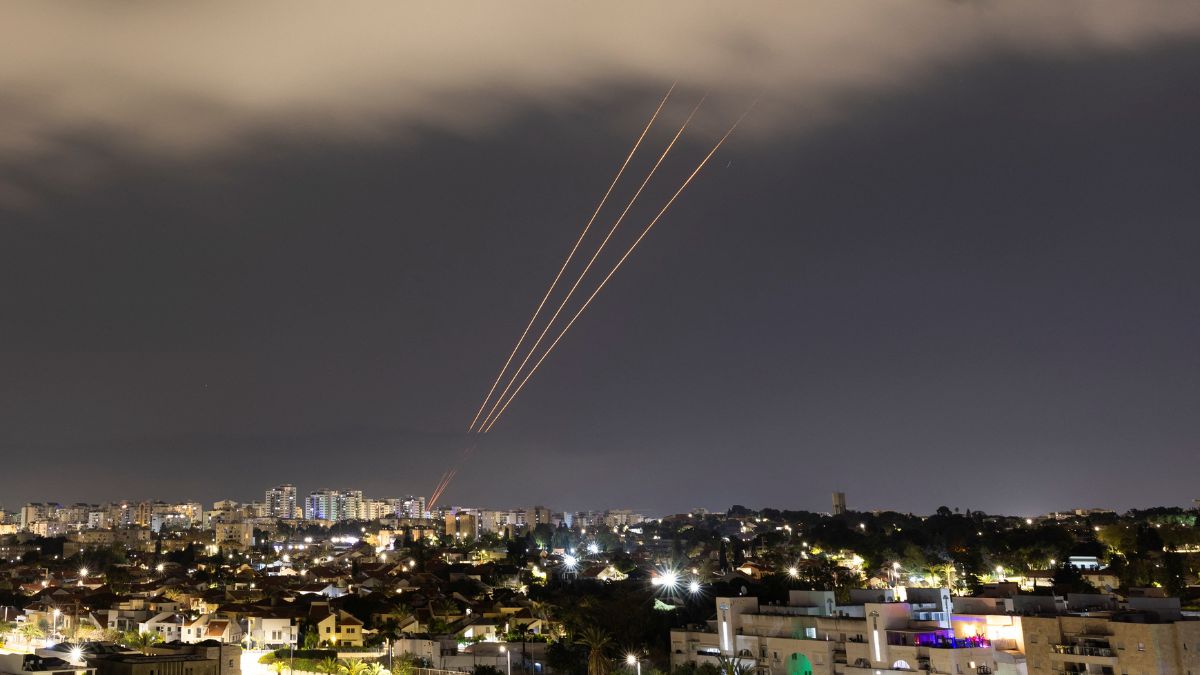- By Imran Zafar
- Sun, 14 Apr 2024 05:10 PM (IST)
- Source:JND
Iran launched a barrage of drones, cruise and ballistic missiles towards Israel late Saturday night, marking Tehran's first direct attack on Israeli territory. The unprecedented retaliatory attack through Islamic Revolutionary Guard Corps (IRGC), came days after an air raid struck Iran's embassy compound in Syria's Damasus which killed 13 people, including two Iranian generals and five military advisors. But the conflict between the two middle-eastern nations can be traced back to decade long enmity.
Both the countries have been fighting for their survival as well as to gain dominance over West Asia. Israel, which came into existence in 1948 had to continuously defend itself from its Arab neighbours as they were initially against the creation of a Zionist state. Meanwhile, Iran which saw a revolution in 1949 overthrowing the monarchy backed by the USA, was not warmly welcomed after the events which unfolded under a theocratic regime.
Iran-Israel Conflict Origin
The roots of this conflict trace back to the 1979 Islamic Revolution, which saw the establishment of a theocratic regime in Iran under Ayatollah Ruhollah Khomeini. The new leadership dramatically shifted Iran's foreign policy, particularly towards the United States and Israel, whom Ayatollah Khomeini dubbed the ''Great Satan'' and ''Little Satan,'' respectively. The rivalry intensified over the years, with both nations engaging in covert operations against each other, often denying involvement.
ALSO READ: How Israel Countered Iran's Drone, Missile Attacks; IDF's Aerial Defence System Explained
The major reasons which are at the core of tensions between these countries are Israel's close ties with the United States and the Israel-Palestine conflict. As the situation only escalated over the years with Iran using its proxies to carry out attacks on Israel while the latter harming Tehran's regional and global interests, including its nuclear programme with the help of its allies.

An anti-missile system operates after Iran launched drones and missiles towards Israel. (Image: Reuters)
Tehran's First Direct Attack On Israli Soil
The current situation was precipitated by a series of events, including the October 7 Hamas attack on Israeli cities last year, which led to a brutal invasion of Gaza by Israel Defence Forces (IDF). Iran, while publicly denying involvement, was reported to have supported Hamas. The conflict has also seen Hezbollah, backed by Iran, targeting Israel from the southern parts of Lebanon.
ALSO READ: World Leaders Denounce Iran’s Retaliatory Drone, Missile Strikes On Israel, Call For De-Escalation
Damascus Incident
On April 1, a strike, allegedly by Israeli warplanes, hit Iran's embassy in Syria, killing seven, including Iranian generals and senior military advisors. The Syrian Foreign Minister condemned the attack and Iran's UN mission called it a blatant violation of international law, reserving the right for a decisive response. Following which Iran carried out the retaliatory attack with the support from its proxies in Lebanon, Syria and Yemen.
Iran's drone offensive is seen as a direct response to the Damascus strike. The Iranian army claims the operation achieved its objectives, signalling a potential new phase in the ''shadow war'' between Iran and Israel. Meanwhile, countries like the UK, USA and France have called for de-escalation of tensions between the two countries as the conflict can trigger a major war not just in the region but in the world.


